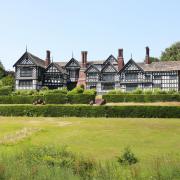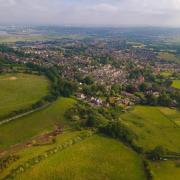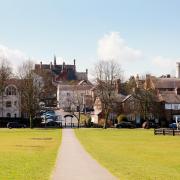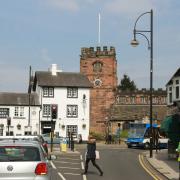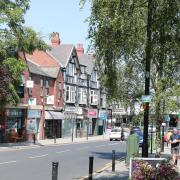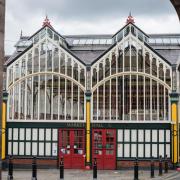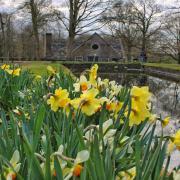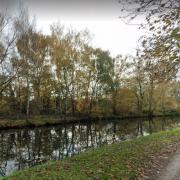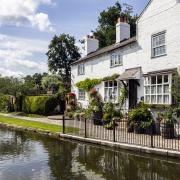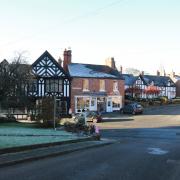Congleton has many charms and a dedicated community
Colourful history
The first settlements in the Congleton area date back to the Stone and Bronze ages. Artefacts have been discovered in the town. The town was once thought to have been a Roman settlement. It became a market town after Vikings destroyed nearby Davenport.
Beartown
According to legend, the residents of Congleton bought a fighting bear with the money that was initially earmarked to pay for a new bible for the town. Bear baiting was a popular spectator sport in the 1700’s and proved to be a profitable move.
Market town
A covered market, just off the pedestrian area, is held twice a week on Tuesdays and Saturdays. Once a month the Tuesday market is joined by a Farmers Market offering local produce. There is an artisan market held every second Sunday at
Community spirit
When it comes to mobilising Congleton’s sense of community, few can be as energetic as Patti Pinto – one of the lead volunteers behind the Britain in Bloom initiative and a driving force locally for the Eco Schools programme managed by the Keep Britain Tidy Group.
Her commitment has seen thousands of edible plants from herbs and blueberries planted in tubs and gardens around the town centre, the establishment of a community orchard at Astbury Mere, looked after by the Congleton Sustainability Group, and mini orchards planted in schools and at other venues. Patti’s Eco Schools initiative has also been remarkably fruitful.
Festivals and events
Congleton is home to many successful events including the Congleton Food and Drink Festival which takes place every June. It is organised by Congleton Community Projects, an organisation first established more than 20 years ago to ensure the town centre flourished. It still does that today.
Athletic history
Congleton’s sporting heritage is remarkable. In the run-up to London 2012 not only did the Olympic torch pass through the town but Congleton runners staged an historic relay from Much Wenlock in Shropshire which lays claim to founding the modern Olympics as ‘the Olympian Games’ in 1850. The town is also home to Ann Brightwell who, as Ann Packer, became Britain’s first female Olympic track gold medallist by winning the 800 metres at the Tokyo Games in 1964 (she also took silver in the 400m). She has lived in Congleton with her husband Robbie Brightwell, who captained Team GB in 1964 and won silver in the 4x400m relay, for more than 40 years.
Centre of Arts
Congleton is home to the Electric Picture House, a non-profit making artist-led co-operative creating a diverse range of work including painting, printmaking, glass, street art, sculpture, ceramics, jewellery and fashion textile design. The building, in Cross Street, has had a chequered history to say the least. It was originally a textile mill and was then converted in to Congleton’s first electric picture theatre in 1911. It has since been an ambulance station, dance hall, bicycle shop and a garage.
Opera and arts
Clonter Opera Theatre nurtures new talent. The group was originally set up in 1974 when Jeffery Lockett, the artistic director, invited the Abbey Opera Group to bring an evening of operatic excerpts to his farm in Cheshire. A barn full of straw bales was converted for the night into an auditorium, and the proceeds went to Cancer Relief. Since then Clonter Opera has become a permanent fixture.
It provides training and performance opportunities for singers who are usually at the beginning of their professional careers. The group, despite the name, don’t just stage opera. They put on shows of every kind including jazz, musical theatre and gospel choirs.
Beauty spot
Astbury Mere Country Park is in a former sand quarry. The beautiful spot, just a few minutes from the town centre, has lots of open space with paths linking to the surrounding countryside. It is owned by Astbury Mere Trust and managed by Cheshire East Ranger Service.
Alan Garner, author of popular children’s fantasy novels including The Weirdstone of Brisingamen is known for his connections with Alderley Edge. But he was born in Congleton. His work is firmly rooted in the landscape, history and folklore of Cheshire.
Where to eat
Pecks Restaurant set below Mow Cop in the village of Moreton, near Congleton, has been popular with residents for almost 30 years. It’s not just a place to grab lunch or dinner, they also cater for weddings and events.




